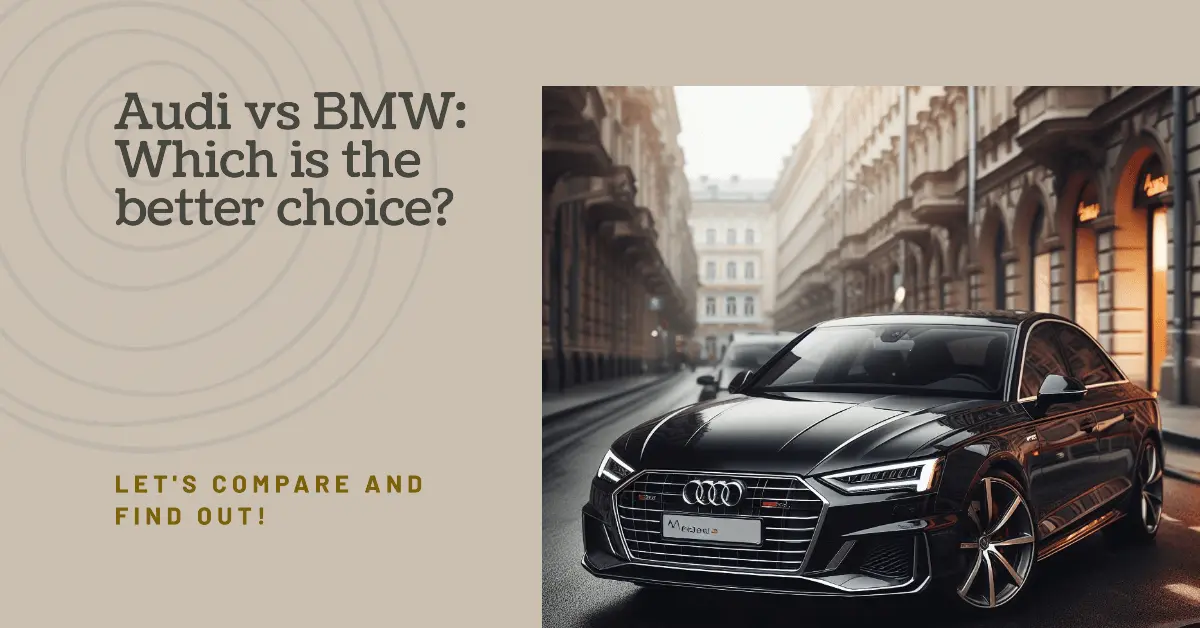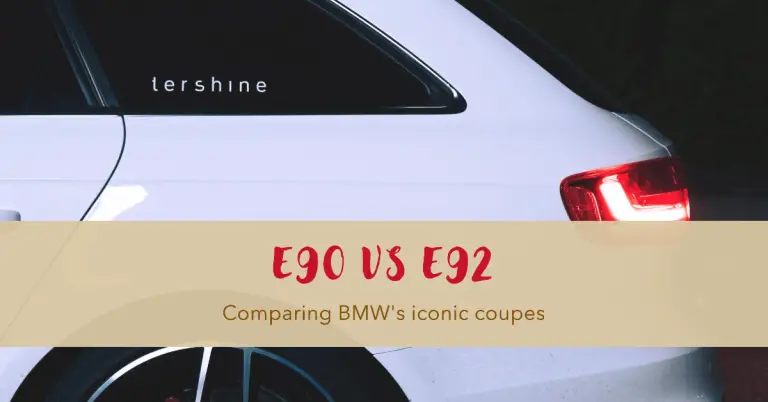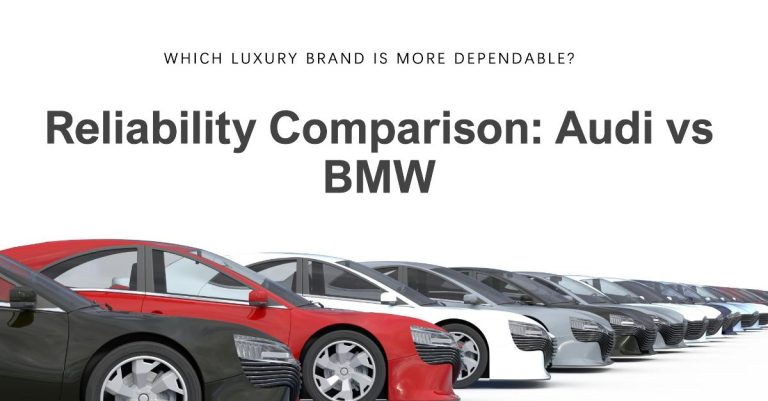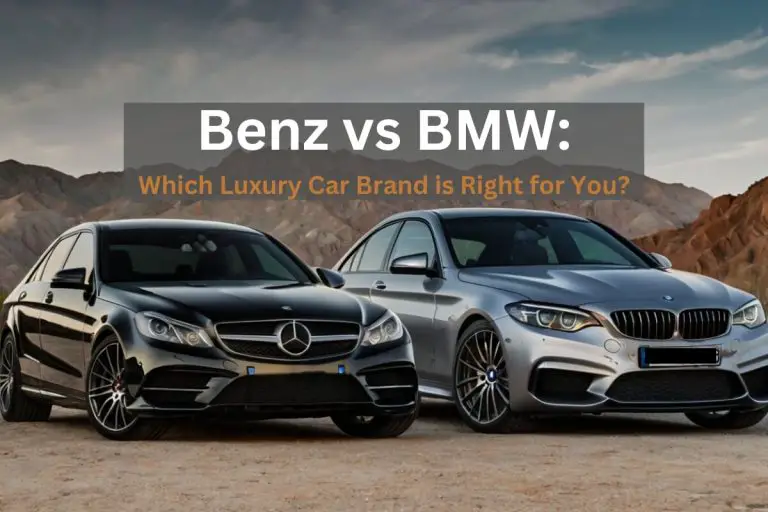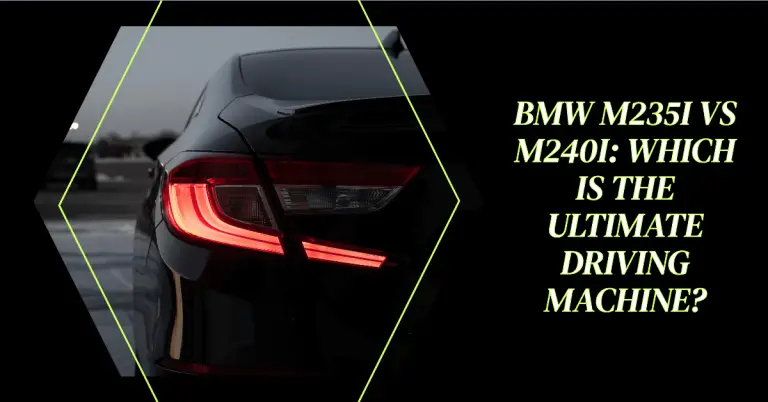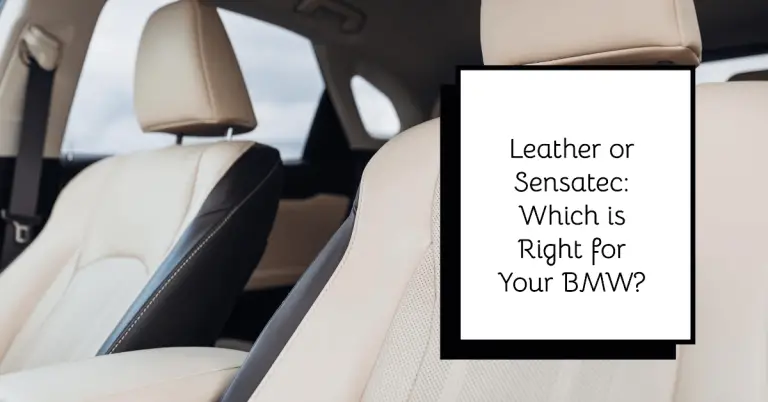Audi vs BMW: Battle of the Premium Brands
Audi and BMW stand atop the luxury vehicle market, commanding premium prices for their combination of high performance, cutting edge technology, and brand cachet. But which automaker truly comes out on top?
Our comprehensive Audi vs BMW comparison explores pricing, ownership costs, reliability ratings, safety features, driving dynamics, interior details, and more to crown an overall winner for luxury car shoppers in 2023.
Pricing: BMW Commands Higher Starting Costs
For budget-focused buyers eyeing affordable luxury, Audi beats BMW on base pricing across vehicles classes while still delivering that coveted premium badge:
| Model | Audi Starting MSRP | BMW Starting MSRP |
| A4 vs 4 Series | $40,095 | $45,695 |
| Q5 vs X3 | $46,295 | $48,695 |
| A6 vs 5 Series Sedan | $55,900 | $58,195 |
However, vehicles are often purchased based on monthly payments rather than full sticker prices. And BMW edges Audi on average monthly costs:
| Model | Audi Monthly Payment | BMW Monthly Payment |
| A4 vs 4 Series | $629 | $692 |
| Q5 vs X3 | $599 | $589 |
| A6 vs 5 Series Sedan | $839 | $874 |
Winner: Tie – Audi’s lower sticker prices provide more value, but BMW counters with competitive monthly payments. Shoppers on either side of the price spectrum can find good options within these premium brands.
Ownership Costs: Advantage Audi
For budget-focused luxury buyers, total long-term ownership costs make a big impact. Here Audi takes a decisive advantage, with 10-year maintenance and repair costs averaging $12,400 compared to $17,800 for BMW:
Specific model comparisons also favor Audi:
| Model | Audi 10-Year Cost | BMW 10-Year Cost |
| A4 vs 4 Series Sedan | $17,100 | $21,200 |
| Q5 vs X3 | $15,800 | $19,750 |
Winner: Audi – Customers enjoy a lower cost of ownership over their vehicle lifetime, saving thousands with the four-ring badge.
Reliability: Both Brands Deliver
Reliability directly impacts long-term ownership costs. Here both German automakers score well across industry measures:
- J.D. Power 2022: Audi slightly leads BMW with 112 reported problems per 100 vehicles vs 114 for BMW. Both beat the industry average.
- RepairPal: Audi and BMW hold strong 4/5 predicted reliability ratings in line with mass market brands.
- Consumer Reports: Audi and BMW are both top-ranked for reliability, on par with mainstream brands like Honda and Toyota. The A4 sedan and Q5 crossover rate particularly well.
Winner: Tie – Both premium brands demonstrate strong dependability on key third-party measures, ensuring a satisfied ownership experience.
Safety Tech: BMW Emerges Ahead
Safety-focused consumers prioritize advanced driver assistance features and crashworthiness. Audi and BMW again rank closely, but BMW models tend to offer more collision protection tech as standard:
| Feature | Audi | BMW |
| Automatic Emergency Braking | Optional | Standard |
| Blind Spot Detection | Standard | Optional |
| Lane Keep Assist | Optional | Standard |
| Front Crash Prevention | 4/5 Stars | 5/5 Stars |
Top safety offerings:
- Audi: Available active suspension, intersection assist
- BMW: Standard frontal collision warning, lane departure warning
Winner: BMW – With more accident avoidance tech standard and better frontal crash results, BMW gets the safety nod. That said, both automakers deliver excellent protection.
Performance: BMW Rules Dynamics
Driving enthusiasts gravitate toward these German marques for sheer performance and handling precision. And BMW still stands at the top in molding dynamic vehicles that handle corners and accelerate with grace:
Reasons for BMW’s performance advantage:
- Rear-wheel-drive architecture – improves handling and agility
- Rev-happy turbocharged engines – quick acceleration
- Sporty steering and suspension tuning – track-capable dynamics
Of course Audi models like the S4 and SQ5 offer blistering straight-line acceleration and grippy Quattro AWD. But BMW remains the pure driver’s choice.
Winner: BMW – With RWD dynamics and dialed powertrains, BMW still holds the performance crown.
Luxury Details: Audi Wows
For passengers expecting the royal treatment, creativity cabin materials and design should dazzle the senses. Beautiful leather, real metals, and modern technology interfaces take center stage.
Audi’s lush interiors feature:
- Stunning customizable ambient lighting
- Brilliant cockpit displays with haptic feedback
- Sumptuous leather seating for all passengers
- Superior sound-dampening keeps outside noise muted
The overall look embraces a subtly futuristic aesthetic, particularly in all-electric models like the Audi e-tron. For luxury atmosphere, Audi hits all the right notes.
Winner: Audi – Cutting-edge user experiences with haptic displays and customizable lighting give Audi interiors true luxury flavor.
The Verdict: Pick By Shopper Priorities
So which brand claims the overall crown – Audi or BMW? The answer depends entirely on personal priorities.
For Cost-Focused Luxury: Audi A4 & Q5
The A4 sports sedan and Q5 crossover stand out with lower acquisition costs and long-term savings. You still get that coveted luxury badge at higher value.
For Tech-Savvy Drivers: Audi A6, e-tron
Audi sedans embrace innovation with multi-touch displays, personalized interfaces, and charging convenience that will delight gadget fans.
For Performance Purists: BMW 3 & 4 Series
With legendary rear-wheel-drive dynamics, BMW sedans and sport coupes offer the purest performance pedigree for driving glory.
For Carpoolers Seeking Space & Safety: BMW X3, X5
Family drivers need generous seating and confidence-inspiring safety systems – the roomy BMW X3 and X5 SUVs deliver.
The Last Word
Audi vs BMW comes down to aligning model strengths to personal priorities – tech features, long-term costs, driver engagement, or cargo versatility all weigh differently. Fortunately both brands stack up well on the merits that matter most to luxury buyers, so choosing between these German icons leads to satisfaction either way.

